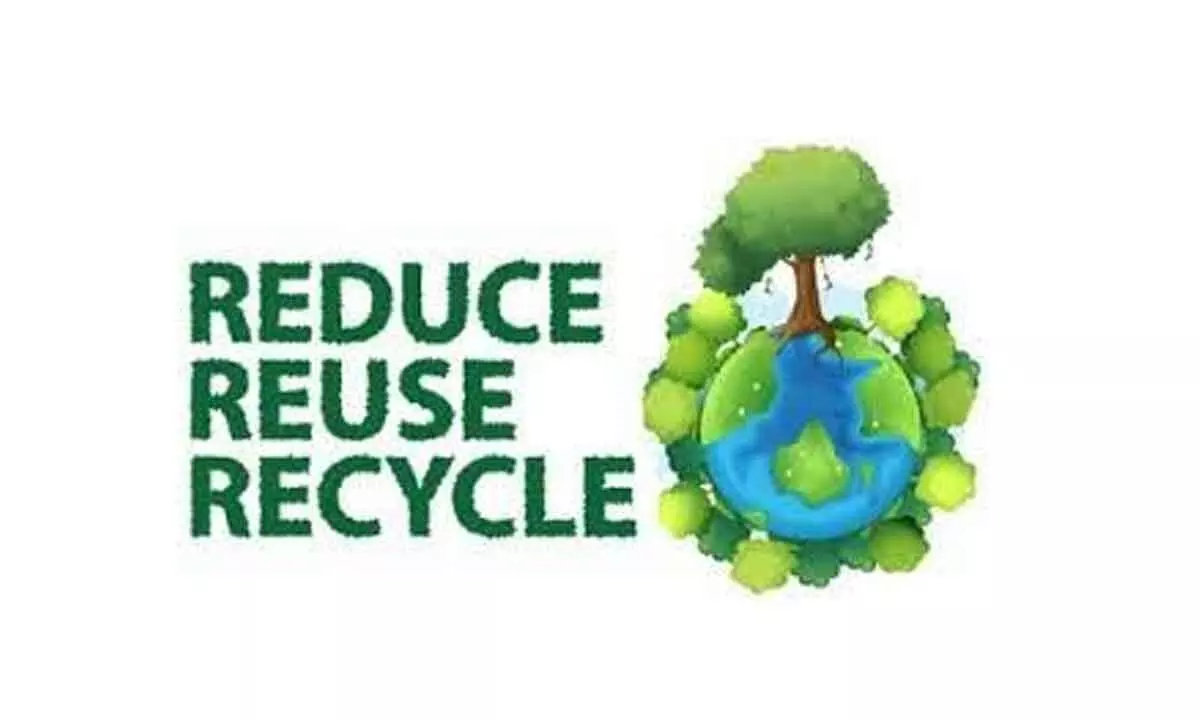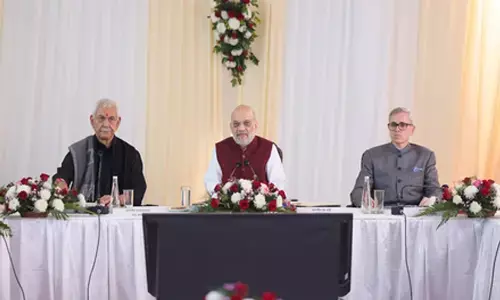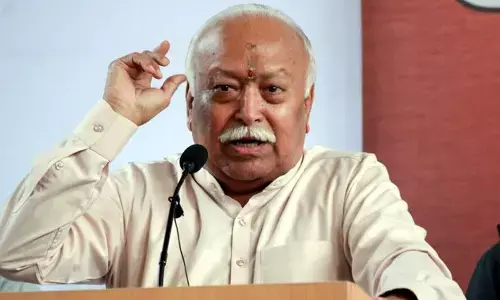‘Reduce, Reuse, Recycle’: Mantra for green living

The climate change i.e., long-term shifts in temperatures and weather patterns that are natural is being augmented by human activities since the 1800s, so much so that the planet experienced the warmest year in 2023. In last two years, we witnessed extreme weather events such as heat waves, glacial lake outbursts in India, polar ice sheets melting, searing temperatures and unusual storms, such as latest Dubai deluge, floods due to rising sea levels, and droughts in African region. And the year 2024 is also poised to raise it by a notch or more.
Burning of fossil fuels such as coal, oil, and gas which produce sun heat-trapping gases is the primary driver of climate change. It is no wonder, then, that there has been an ardent, clarion call for humans to switch to sustainable lifestyles. The humongous amounts of plastic generated by humans – at 350 million tonnes a year – has become a grave issue, putting at grave risk human, plant and animal kingdoms. Plastics don’t biodegrade, slowly turn into microplastics that in turn release toxic chemicals that eventually transfer into the atmosphere, plant life and animal tissue.
Plastic objects and particles discarded in the environment, such as plastic bags, bottles, and microbeads, are causing harm to wildlife, natural habitats, and humans. Concerned citizens and civil societies, apart from the environmentally-conscious governments are struggling to mount a global campaign to curb plastic consumption. Thanks to their relentless appeals through rallies, fairs, seminars and expos, slogans such as following have become ubiquitous: “Break Free from Plastic Pollution”; “Plastic-Free Living: Where Health and Sustainability Intersect”; “Less Plastic, More Life”; “Choose Refusables, Not Disposables”; “Refuse Plastic, Embrace Nature”; “No Plastic, No Problem”; “Say No to Plastic, Say Yes to a Cleaner World,” etc.
Our social choices have become crucial determinants of how we, or future generations, are going to lead their lives, reducing the use of natural resources, pollution, waste, and CO2 emissions. Simply, leading a cleaner and healthier living, discarding or reducing use of such materials as will reduce our carbon footprint (the total amount of greenhouse gas emissions contributed by an individual, organization, event, or product), is key to saving this planet, our only home in the universe.
Amidst this disquieting scenario, the Intergovernmental Negotiating Committee (INC) of the UN Environment Programme (UNEP), set up to develop an international legally binding instrument on plastic pollution, commenced its fourth session (INC-4) in Canada’s capital of Ottawa on April 23. The session that concludes on April 29 is brainstorming to advance a plan of action that the committee can finalise, at its fifth session (INC-5) in November.
Green activists are waiting with bated breath to hear a good news from the conference. All the UN members, especially the fossil fuel producers, must feel it binding to converge on eliminating the plastic uses that have become hugely problematic and avoidable. We need to cut back on its consumption – especially for single use, such as plastic containers, straws, coffee stirrers, soft drink and water bottles, and food and furniture packaging.
Though in 2018, India banned single-use plastic while and made plastic waste processing mandatory. The reality is quite the opposite. Centre, States, both, lack will to turn intent into practice. While governments are seized of the issue, we, individuals, must take recourse to ‘Reduce, Reuse, Recycle’ practice, adopt it as the mantra of everyday living. Governments can only put curbs on plastic production and discourage its uses, while the real change must be driven by us, individually.
















